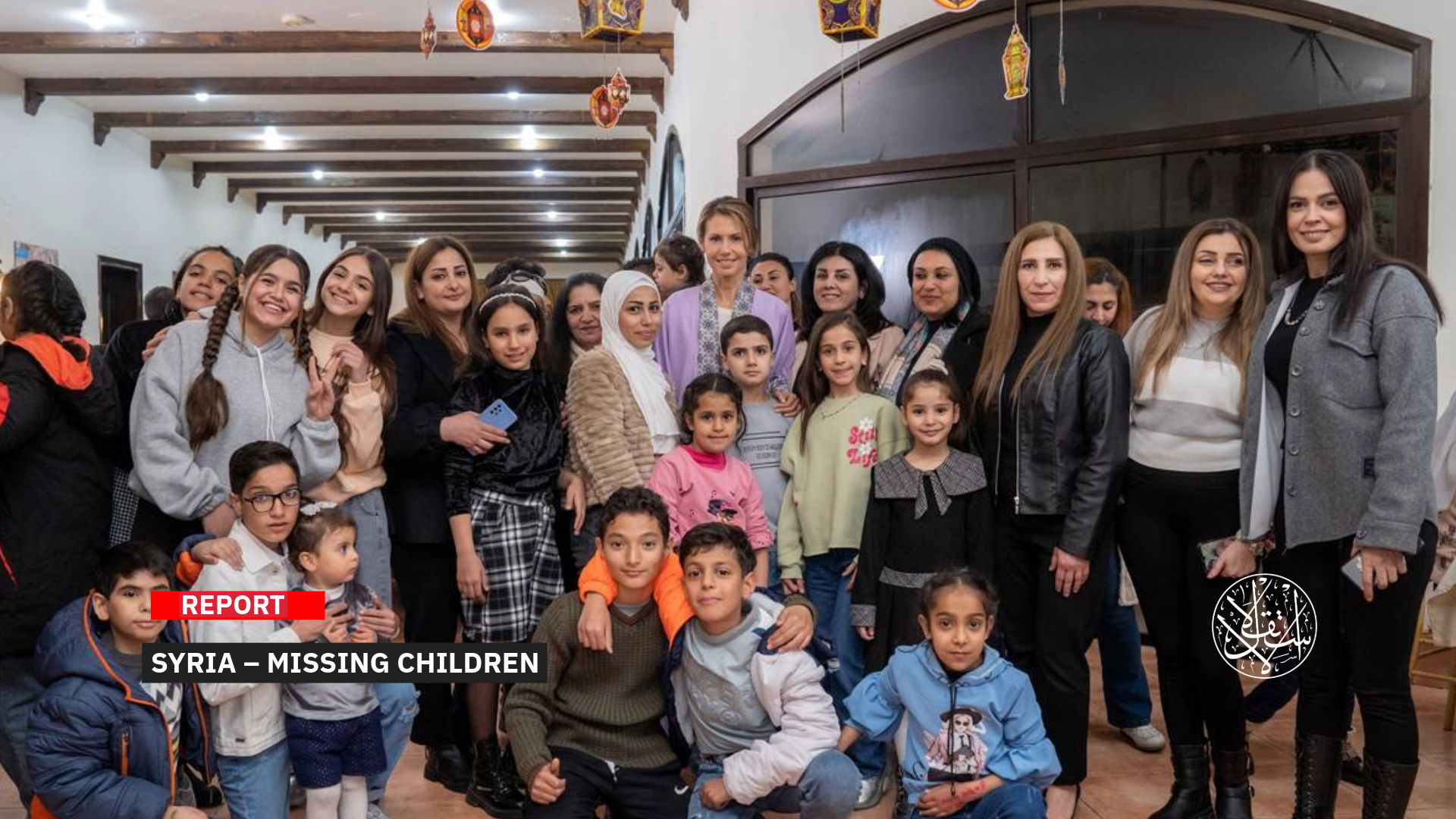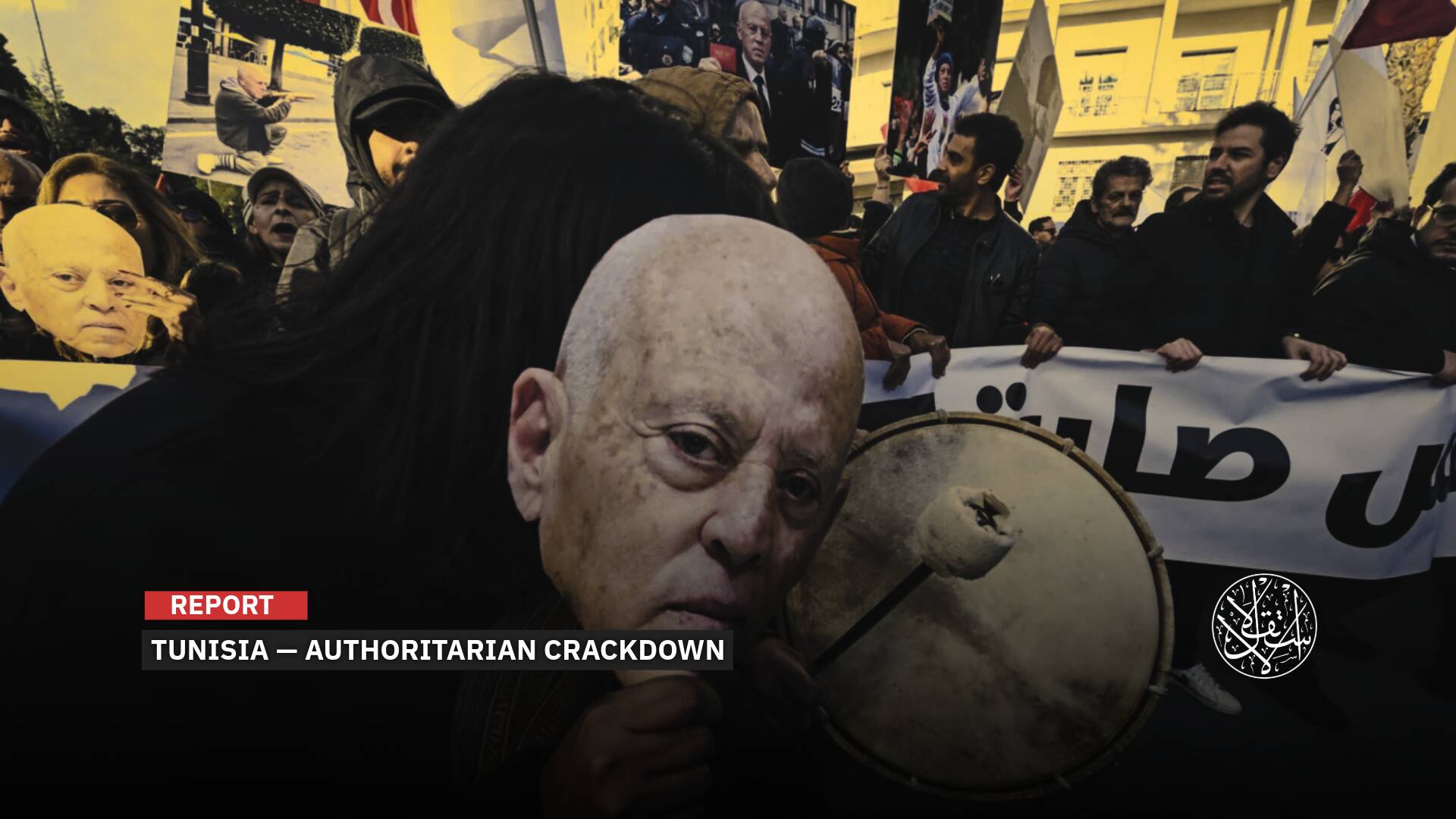Unknown Fate: How the Assad Regime Deliberately Concealed the Children of Detainees From Their Families

“At least 300 children were transferred by the Assad regime to orphanages between 2014 and 2018.”
The issue of forcibly disappeared children of Syrian detainees is one of the most sensitive issues in the post-Assad era.
For several months, the new Syrian administration has been seeking to trace the fate of these children who went missing while their families were detained in the prisons of the former regime or during their stay in government orphanages.
There are accusations of exploitation or cover-up of the disappearance of these children within networks suspected of involving government officials, security services, and humanitarian organizations.
In the same context, the Syrian Network for Human Rights (SNHR) confirmed the existence of documented lists of approximately 3,700 children forcibly disappeared from their families by the Assad regime over a period of 14 years, during raids and mass arrests.
Missing Children
In this regard, the Committee for Investigating the Fate of the Children of Detainees and the Forcibly Disappeared held a press conference in Damascus on July 8 to explain its working mechanism and plans, revealing the latest developments regarding children detained during the Assad regime's rule.
The committee was chaired by Raghda Zeidan, Advisor to the Minister of Social Affairs and Labor, and includes representatives from the Ministries of Interior, Endowments, and Justice, civil society organizations, families of missing persons, and a number of human rights and forcibly disappeared persons specialists.
Ms. Zeidan emphasized the need for professional coordination among all relevant parties to achieve accurate and comprehensive results.
According to a representative from the Ministry of Social Affairs and Labor, the orphanages provided preliminary figures indicating the presence of 314 children. But the committee believes these numbers are inaccurate, stressing that the coming days will reveal the truth.
For his part, the representative from the Ministry of Interior, Samir Qurbi, announced the arrest of former officials in the Assad regime and orphanage directors pending investigation on suspicion of involvement in the disappearance of detained children.
He explained that the committee is currently focusing its efforts on determining the number of children transferred to orphanages and documenting their conditions.
In turn, the representative from the Ministry of Justice, Judge Hussam Khattab, confirmed that all measures taken by the committee, including the arrest of suspects, are within the legal framework and ensure the highest standards of justice.
He noted that the committee is also monitoring cases of illegal travel of children, unlicensed foster homes, and cases of tampering with lineage, emphasizing the need to hold accountable anyone proven to be involved.
Syrian judicial sources reported that the Public Prosecution in Damascus arrested Kinda al-Shammat and Rima al-Qadri, who previously served as Minister of Social Affairs and Labor.
This is the first time that ministerial-level officials in Bashar al-Assad's government have been arrested since his fall on December 8, 2024.
The Public Prosecution also arrested Hanadi al-Khaimi, Nada al-Ghabra, and Lama al-Sawwaf, who held administrative positions at the Lahn al-Hayat Child Care Complex in Damascus, as well as Rana al-Baba, director of the al-Mabara for Orphan Association.
These arrests follow a decision by Minister of Social Affairs and Labor Hind Kabawat on July 2 to form a special investigation committee to follow up on the missing children file.

Secret Lists
In a latest development, the Syrian website Zaman al-Wasl published a list of 21 children of detained men and women who were transferred to orphanages by the intelligence services between 2013 and 2021.
National Public Radio (NPR), an American non-profit media organization, identified more than 300 children distributed by the Assad regime's intelligence services to orphanages in Damascus.
SOS Children's Villages Syria admitted that it received 139 children from intelligence services without any official papers between 2013 and 2019.
It subsequently asked authorities not to send children to its branches, revealing last April that 21 children had returned to their families so far.
Dar al-Rahma Orphanage Director Bara'a al-Ayoubi told NPR that the organization received approximately 100 children of detainees from intelligence services between 2015 and 2024, adding that 24 of them had returned to their families.
A document from the Lahn al-Hayat Child Care Complex showed 45 children sent by the Assad regime's intelligence services, with estimates that hundreds more children were sent this way.
The case of the missing children of Syrian detainees sparked a global outrage around SOS Children's Villages Syria, prompting it to issue a statement expressing its regret for receiving these children and taking steps to prevent this from happening again.
Since the fall of the regime in Syria last December, orphanages have handed over dozens of children of political detainees to their families.
However, this number remains very small compared to the thousands of missing children, many of whom the SNHR says were detained.
With the changes taking place in Syria in recent weeks, the family of Rania al-Abbasi, known as the most famous detainee in the former regime's prisons, continues to search for any information that would lead to her children's fate.
The Assad regime arrested Rania, a dentist and former chess champion, from her home in March 2013, along with her six children and personal assistant, two days after the arrest of her husband, Abdul Rahman Yasin.

Organized Crime
It is worth noting that most of the investigations into the disappearance of children of detainees and the changing of their surnames relate to the tenure of Ministers Kinda al-Shammat (February 2013 to August 2015) and Rima al-Qadri (August 2015 to August 2020) in the Assad regime.
During these years, Assad's intelligence services arrested hundreds of thousands of Syrian opposition figures.
Data indicates that all official evidence during the aforementioned period was signed by these two ministers, which reinforces their direct responsibility for most of these serious violations.
Earlier, the media office of the Ministry of Social Affairs and Labor confirmed the discovery of secret documents issued by the security branches of the ousted Assad regime, which referred children, particularly the children of detainees, to orphanages.
These security branches also issued orders preventing families and relatives from communicating with their children or learning any details about them, and strictly withholding information about these children.
In some cases, some orphanages even changed family names and distorted official records.
Documents indicate that these secret operations were conducted according to a systematic policy coordinated between the Ministry of Social Affairs and Labor, orphanages, and the security services, most notably the Air Force Intelligence Service.
More importantly, the case of these children was under the direct supervision of Asma al-Assad, the wife of ousted Bashar al-Assad, as revealed by Mays Ajeeb, the current director of the Lahn al-Hayat Complex, who was later released.

In turn, SNHR Director Fadel Abdul Ghani confirmed in a statement to Al-Estiklal that there is no legal or human rights justification for changing children's parentage, whether by a ministry, an orphanage, or a childcare center, describing this act as slavery in every sense of the word.
“What the children of detainees have been subjected to is a carefully systematic crime embodied in the process of buying and selling, carried out in full coordination with the Assad regime's intelligence services, which gives it the character of organized crime,” he added.
“This issue has transcended its humanitarian dimension to become a fundamental test of the new Syrian administration's ability to confront the dark legacy of the Assad regime, thereby restoring confidence in the national values that guarantee human dignity and rights,” Mr. Abdul Ghani concluded.
Sources
- Hotlines to Follow Up on the Fate of the Children of the Forcibly Disappeared
- SNHR Possesses Verified Lists of About 3,700 Children Forcibly Disappeared by the Assad Regime
- The missing children of Syria: Hidden in orphanages under Assad, where are they now?
- A Family’s Decadelong Search for Children Stolen by Assad’s Regime










